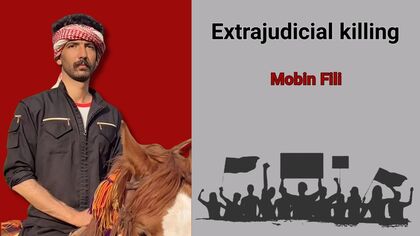Saudi Arabia Blocks Website Of Iran's Supreme Leader
20:31 - 5 February 2012

Kurdpa - Iranian news websites report that Saudi Arabia has blocked the official website of Iran\'s Supreme leader Ayatollah Ali Khamenei, which is available in a dozen languages, including Arabic.
\"Shafaf\" says Khamenei\'s website was blocked by Saudi officials ahead of his sermons for Friday Prayers on February 3, parts of which the Iranian leader delivered in Arabic.
The hard-line \"Shafaf\" website posted a screenshot of the page it claims Saudi users get when they try to access Khamenei\'s website.
The website claims Saudi officials decided to block Khamenei\'s official website because of what it described as Iran\'s influence on the \"Islamic awakening.\" Iranian officials have been using the term as part of their efforts to put their own stamp on the Arab Spring uprisings, which they claim have been inspired by Iran\'s own 1979 revolution.
Political tensions between Iran and Saudi Arabia have been escalating over Tehran\'s alleged plot to assassinate the Saudi ambassador to Washington and also over last March\'s intervention in Bahrain by Saudi forces to help the country\'s Sunni rulers crush pro-reform demonstrations by the Shi\'ite majority.
In his Friday Prayers sermons, Khamenei dismissed accusations that Iran has supported the Shi\'ites in Bahrain:
“The rulers of Bahrain claimed that Iran is involved in the events of Bahrain. This is a lie. No, we do not interfere. ... If we had interfered, the conditions would have been different in Bahrain.\"
Khamenei spoke at length about the revolutions and revolts in the region over the past year. He fell short, however, of mentioning the ongong antigovernment protests in Syria.
Ties between predominantly Shi\'ite Iran and predominantly Sunni Saudi Arabia have been marked in past years by rivalry and mistrust.
Iran last month warned Saudi Arabia not to compensate on global markets for any loss of Iranian oil exports if Tehran is hit by international sanctions, calling a pledge by Riyadh to boost output \"not friendly.\"
Both Iran and Saudia Arabia are considered \"enemies of the Internet\" by the French media watchdog Reporters Without Borders over their efforts to suppress freedom of expression.
Source - RFE
\"Shafaf\" says Khamenei\'s website was blocked by Saudi officials ahead of his sermons for Friday Prayers on February 3, parts of which the Iranian leader delivered in Arabic.
The hard-line \"Shafaf\" website posted a screenshot of the page it claims Saudi users get when they try to access Khamenei\'s website.
The website claims Saudi officials decided to block Khamenei\'s official website because of what it described as Iran\'s influence on the \"Islamic awakening.\" Iranian officials have been using the term as part of their efforts to put their own stamp on the Arab Spring uprisings, which they claim have been inspired by Iran\'s own 1979 revolution.
Political tensions between Iran and Saudi Arabia have been escalating over Tehran\'s alleged plot to assassinate the Saudi ambassador to Washington and also over last March\'s intervention in Bahrain by Saudi forces to help the country\'s Sunni rulers crush pro-reform demonstrations by the Shi\'ite majority.
In his Friday Prayers sermons, Khamenei dismissed accusations that Iran has supported the Shi\'ites in Bahrain:
“The rulers of Bahrain claimed that Iran is involved in the events of Bahrain. This is a lie. No, we do not interfere. ... If we had interfered, the conditions would have been different in Bahrain.\"
Khamenei spoke at length about the revolutions and revolts in the region over the past year. He fell short, however, of mentioning the ongong antigovernment protests in Syria.
Ties between predominantly Shi\'ite Iran and predominantly Sunni Saudi Arabia have been marked in past years by rivalry and mistrust.
Iran last month warned Saudi Arabia not to compensate on global markets for any loss of Iranian oil exports if Tehran is hit by international sanctions, calling a pledge by Riyadh to boost output \"not friendly.\"
Both Iran and Saudia Arabia are considered \"enemies of the Internet\" by the French media watchdog Reporters Without Borders over their efforts to suppress freedom of expression.
Source - RFE



